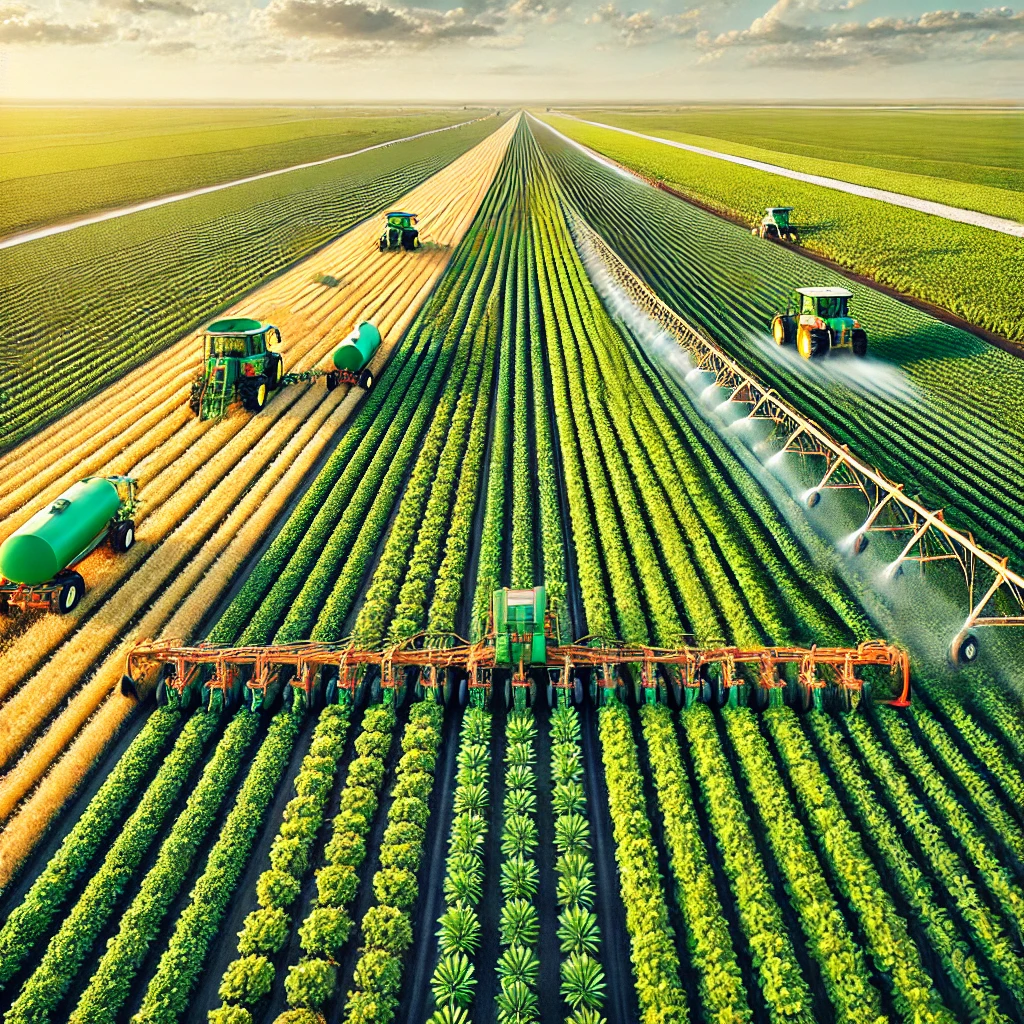Organic farming has emerged as a cornerstone in the quest for sustainable agriculture. This method of farming, which eschews synthetic chemicals and emphasizes natural processes, offers a promising path toward environmental stewardship, economic viability, and social equity. In this article, we will explore the principles of organic farming, its benefits, and the challenges it faces in the modern agricultural landscape.
Principles of Organic Farming
Organic farming is grounded in a set of principles that prioritize ecological balance, biodiversity, and soil health. These principles are designed to create a farming system that is both productive and sustainable over the long term. Key principles include:
- Soil Health: Organic farming places a strong emphasis on maintaining and improving soil health. This is achieved through practices such as crop rotation, cover cropping, and the use of organic fertilizers like compost and manure. Healthy soil is rich in organic matter and teeming with beneficial microorganisms, which help to improve soil structure, water retention, and nutrient availability.
- Biodiversity: Organic farms often feature a diverse array of crops and livestock. This diversity helps to create a more resilient farming system that can better withstand pests, diseases, and changing climate conditions. Additionally, biodiversity supports a wide range of ecosystem services, such as pollination and natural pest control.
- Ecological Balance: Organic farming seeks to work in harmony with natural ecosystems. This involves minimizing the use of external inputs, such as synthetic pesticides and fertilizers, and instead relying on natural processes to manage pests and fertility. Techniques such as integrated pest management (IPM) and agroforestry are commonly used to maintain ecological balance.
- Animal Welfare: Organic farming standards often include strict guidelines for the humane treatment of livestock. Animals are typically given access to outdoor spaces, fed organic feed, and raised without the use of antibiotics or growth hormones. This focus on animal welfare not only benefits the animals but also contributes to the overall health of the farming system.
Benefits of Organic Farming
The adoption of organic farming practices offers numerous benefits for the environment, farmers, and consumers. These benefits include:
Environmental Benefits
Organic farming has a positive impact on the environment in several ways:
- Reduced Chemical Use: By avoiding synthetic pesticides and fertilizers, organic farming reduces the risk of chemical runoff and contamination of water sources. This helps to protect aquatic ecosystems and maintain clean drinking water supplies.
- Enhanced Soil Health: Organic practices such as composting and cover cropping improve soil structure and fertility, leading to healthier and more productive soils. This, in turn, reduces the need for chemical inputs and enhances the farm’s resilience to climate change.
- Increased Biodiversity: Organic farms often support a greater diversity of plant and animal species compared to conventional farms. This biodiversity helps to create a more balanced and resilient ecosystem, which can better withstand environmental stresses.
- Carbon Sequestration: Organic farming practices, such as reduced tillage and the use of cover crops, can help to sequester carbon in the soil. This contributes to the mitigation of climate change by reducing the amount of carbon dioxide in the atmosphere.
Economic Benefits
Organic farming can also offer economic advantages for farmers and rural communities:
- Premium Prices: Organic products often command higher prices in the market, providing farmers with a potential source of increased income. This premium can help to offset the higher costs associated with organic production.
- Market Opportunities: The demand for organic products has been steadily increasing, creating new market opportunities for farmers. This growing market can help to support the economic viability of small and medium-sized farms.
- Reduced Input Costs: While organic farming may require more labor and management, it often involves lower costs for synthetic inputs such as pesticides and fertilizers. This can help to reduce overall production costs and improve farm profitability.
Social Benefits
Organic farming also has the potential to deliver social benefits, including:
- Improved Health: By reducing exposure to synthetic chemicals, organic farming can contribute to better health outcomes for farmers, farm workers, and consumers. Organic foods are often perceived as healthier and safer, which can drive consumer demand.
- Community Development: Organic farming can support rural development by creating jobs and fostering a sense of community. Farmers’ markets, community-supported agriculture (CSA) programs, and other direct-to-consumer sales models can help to strengthen local economies and build social connections.
- Education and Awareness: The principles and practices of organic farming can help to raise awareness about sustainable agriculture and environmental stewardship. Educational programs and outreach efforts can inspire more people to adopt sustainable practices in their own lives.
Challenges and Future Directions
Despite its many benefits, organic farming faces several challenges that must be addressed to ensure its continued growth and success. These challenges include:
Yield Gaps
One of the primary challenges facing organic farming is the potential for lower yields compared to conventional farming. While organic practices can improve soil health and resilience, they may not always achieve the same level of productivity as conventional methods. Research and innovation are needed to develop new techniques and technologies that can help to close this yield gap.
Certification and Regulation
Obtaining organic certification can be a complex and costly process for farmers. The certification process involves meeting strict standards and undergoing regular inspections, which can be burdensome for small-scale producers. Efforts to streamline certification and provide support for farmers can help to make organic farming more accessible.
Market Access
While demand for organic products is growing, access to markets can still be a challenge for some farmers. Building robust supply chains and distribution networks is essential to ensure that organic products can reach consumers efficiently and affordably. Additionally, efforts to educate consumers about the benefits of organic products can help to drive demand.
Research and Development
Continued investment in research and development is critical to advancing organic farming practices. This includes research on soil health, pest management, crop breeding, and other areas that can help to improve the productivity and sustainability of organic farming. Collaboration between researchers, farmers, and policymakers is essential to drive innovation and address the challenges facing the organic sector.
Conclusion
Organic farming plays a vital role in the pursuit of sustainable agriculture. By prioritizing soil health, biodiversity, and ecological balance, organic farming offers a pathway to a more resilient and environmentally friendly food system. While challenges remain, the benefits of organic farming for the environment, economy, and society are clear. With continued support and innovation, organic farming has the potential to contribute significantly to a sustainable and prosperous future for agriculture.










